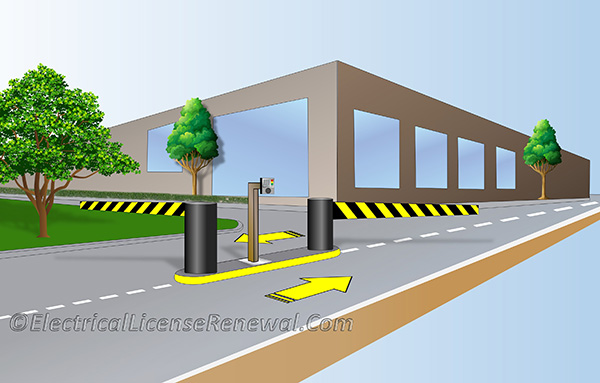NFPA 731 General Definitions. Access Control.

Chapter 3 of NFPA 731 contains general definitions used in the standard. It is important to understand what is considered “Access Control”.
Access control is the process of controlling access to or egress through a Portal by validating a person or their credentials.
Annex A in NFPA 731, Section A.6.1.3 provides the following examples of Portals:
Examples of portals include, but are not limited to, doors, gates (personnel and vehicular), lift gates, sliders, barriers, turnstiles (mechanical and optical), mantraps, and sally ports.
Electronic Access Control Systems are covered in Chapter 6 of NFPA 731.
Below is a sample of NFPA 731. For the complete section, see the actual NFPA 731 text at NFPA.ORG. Once there, click on the free access link to the latest edition of NFPA 731.
3.3.1 Access Control. The act of managing ingress or egress through a portal by validating a credential or an individual.
Chapter 6 Electronic Access Control Systems
6.1 General. This section shall apply to physical electronic access control systems only.
6.1.1 Equipment. Electronic access control equipment shall be in compliance with applicable standards, such as ANSI/ UL 294, Standard for Access Control System Units.